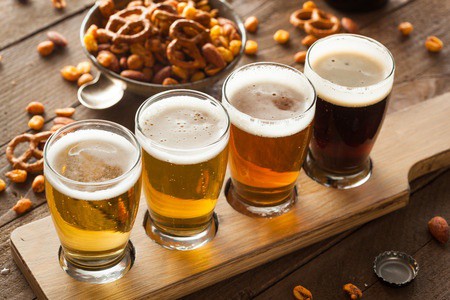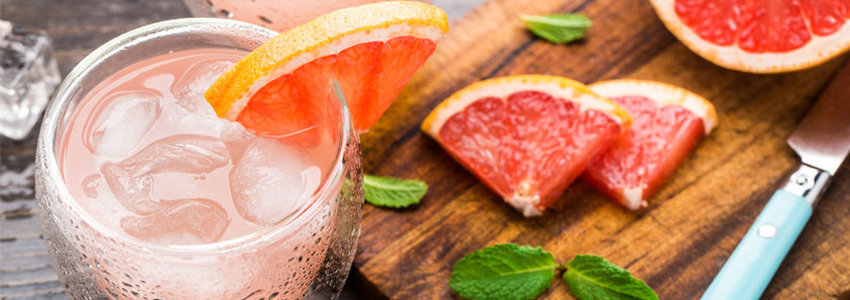Excessive Alcohol & Osteoporosis
Drinking & Your Risk of Fracture | Drink Less for Stronger Bones
The evidence is clear.
If you are a heavy drinker (more than 3 ounces every day) you are at risk for many illnesses and diseases, including increased bone density loss and osteoporosis.
And it does not matter your age. Increased drinking during your developmental years (adolescence and young adulthood) has a dramatic effect on your bone health. But studies show there is a dramatic effect on people past 70!
You already know that calcium is essential for bone health. Alcohol is the natural enemy of calcium. There are several negative affects calcium suffers when you drink too much alcohol.
Most critically, not enough calcium gets into your bones.
Excess alcohol consumption does not allow calcium to adequately absorb in your stomach. The pancreas will not process calcium and vitamin D properly. The liver, a vital organ in the calcium – vitamin D connection – will stop helping effectively.
And, as they say on TV, “Wait, there’s more…”
Alcohol affects your hormones. Estrogen is crucial to bone remodeling. But excessive drinking drops estrogen levels, and that means increased bone density loss.
While dropping estrogen levels, too much alcohol will increase levels of cortisol and parathyroid hormone. Higher amounts of these two speeds bone loss, interferes with calcium levels and boosts bone breakdown.
Finally, excessive drinking often goes hand-in-hand with poor nutrition. So, heavy drinkers tend to get less of the nutrients their bodies – and their bones – really need to stay healthy.
Drinking & Your Risk Of Fracture
High alcohol consumption has negative effects on bone health and increases your risk to suffer a fracture.
Although alcohol’s damaging effects on bones are most striking in people who drink heavily during adolescence and young adulthood, research shows that elderly women (between the ages of 67 and 90) who consumed an average of more than 3 ounces of alcohol per day (the equivalent of six typical alcoholic drinks) had greater bone loss than women who had minimal alcohol intake.(2)
A study conducted in July 2005 calculated the risk. (1) It looked at the relationship of the risk in regards to age, sex, and bone mineral density.
The study looked at 5,939 men and 11,032 women. They followed the habits of these people for the equivalent of 75,433 person-years. The effect of reported alcohol intake on the risk of any fracture, any osteoporotic fracture, and hip fracture alone was examined.
The results of the study showed alcohol intake was associated with a significant increase in osteoporotic and hip fracture risk. While no significant increase in risk was observed at alcohol consumption of 2 drinks or less daily, above this amount, alcohol intake increased the risk of any fracture and specifically hip fractures.
The risk ratios were moderately but not significantly higher in men than in women, and there was no evidence for a different threshold by gender.
The researchers concluded, “That intake of alcohol confers a risk of some importance beyond that explained by bone density loss.”
Another risk for fracture comes from some of the specific symptoms of excessive consumption.
Alcohol affects both balance and gait. People with alcohol problems tend to fall more frequently than those without the disorder.
There is a link between heavy alcohol consumption and an increase in the risk of fracture, including the most serious kind: hip fracture. Vertebral fractures are also more common in those who abuse alcohol.
Some bone fractures can be attributed to alcohol, due to car accidents or falls. Plus, in addition to contributing to bone fractures, alcohol also impairs the healing process.
Drink Less for Stronger Bones
Temptation and opportunity abound.
As we head into the summer months, you face a menu of picnics, backyard BBQs, family gatherings and the office happy hour after work.
It seems that at each of these occasions, everyone else is having more than their fair share of alcohol and enjoying themselves completely.
Excess alcohol consumption is an issue, but research has shown that moderate alcohol consumption (particularly red wine 1-2 glasses) may actually be beneficial for bone health.
According to a recent study(2), a glass or two of red wine works as well as certain bone drugs to keep bones strong and ease the development of osteoporosis.
However, make no mistake it is wine or beer and not any other form of alcohol that drives home the benefit to the thinning bones. Also, caution is to be practiced in terms of the amount of wine that is being consumed. Any more than a glass or two will do damage.
So, don’t over indulge and focus on a glass of red wine to compliment your meal.
The following are a few practical suggestions for stronger bones:
Food
Make healthy food choices. Make sure you get all the vitamins, minerals and nutrients your body needs every day. Read the labels on packaged food, and eat fresh foods whenever possible. This will give a natural boost to your bone-building efforts and will improve your healing processes.
Make sure your diet includes adequate amounts of calcium, including dairy products; dark green, and leafy vegetables.
Read the labels and look for the vitamin D levels. Great food supplies of vitamin D come from egg yolks, saltwater fish, and liver. Although sunshine is your best source.
 Exercise
Exercise
Give your muscles a good workout and gives your bones a good workout too.
Weight-bearing exercise, such as walking, jogging, climbing stairs and even a few turns around the dance floor are all great ways to get in your bone-healthy exercise. Start out easy, and then increase the time you exercise to a maximum of 60 minutes at least three times per week. It’s also important to incorporate stretching. Stretching is an often neglected exercise, but can increase mobility and range of motion.
Lifestyle
Don’t smoke. Studies show that smokers drink more and drinkers smoke more.
Smokers absorb less calcium from the food they eat. But when smokers begin a “stop smoking” program, they usually cut back on their alcohol intake too. (The reverse is also true, studies show.)
Supplement
There is no doubt that drinking plenty of water (in place of alcohol) is good for your body. So, when you drink your water with breakfast and dinner, supplement with bone-supporting AlgaeCal Plus.
The daily dose of AlgaeCal Plus ensures you get the right amounts of all 13 essential bone supporting minerals. Discover more about AlgaeCal Plus here.
Sources:
- Kanis JA, Johansson H, Johnell O, Oden A, De Laet C, Eisman JA, Pols H, Tenenhouse A. Alcohol intake as a risk factor for fracture.Osteoporos Int. 2005 Jul;16(7):737-42. Epub 2004 Sep 29.
- dailymail.co.uk/health/article-2182978/Wine-good-drugs-bones.html





May
June 11, 2016 , 6:25 amTwo weeks ago I watched in Las Vegas PBS Mark Hyman, MD presenting result of his research on sugar and carbohydrate intake vs fat. In his opinion, sugar and carbo contribute more to obesity, diabetes and heart diseases compared to fat. Therefore he recommends a diet of good healthy fat (i.e unprocessed, virgin and cold press like a good Olive oil) and very low in carb and sugar.
If sugar is bad for our health, maybe the rules about wine should be rewritten. How much sugar is actually in the average red and white wine? And isn’t it so that for every individual senior, the tolerable maximum amount of wine or alcohol intake could vary? Someone with compromised liver or who tires fast after drinking e.g. may have to accept a lower maximum of red wine he/she can drink than the ‘1-2 cups’ a day.